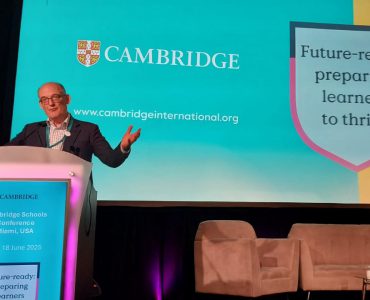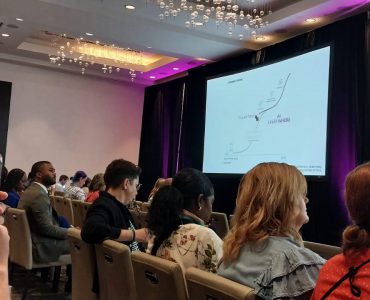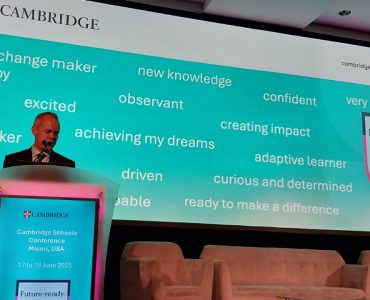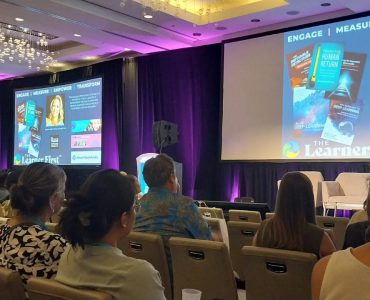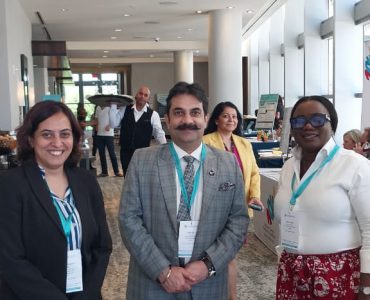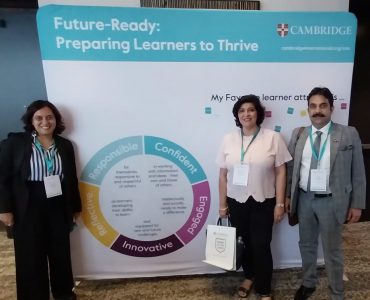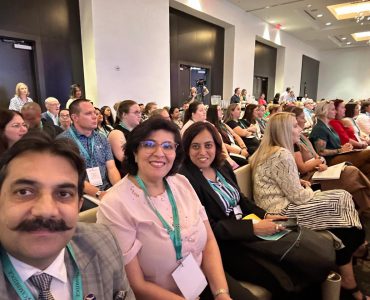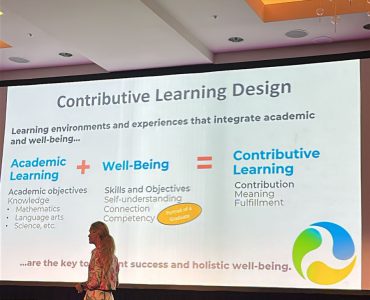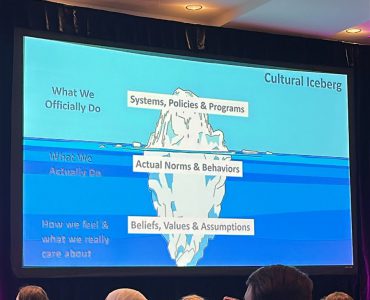THE HYDERABAD PUBLIC SCHOOL, BEGUMPET CAMBRIDGE ANNUAL SCHOOL CONFERENCE
JUNE 2025
The Cambridge Annual School Conference for 2025 was held in Miami on the third week of June. The conference was attended by the Principal, Dr. Skand Bali and the Head International Curriculum, Ms. Sonali Roy Chowdhury Singh.
With over 500 participants globally, the conference at Eden Roc Miami provided a dynamic mix of expert presentations, hands-on sessions, and rich networking. With a strong emphasis on future-ready education, it connected global educators in a vibrant, collaborative setting—a meaningful investment in shaping the next generation of learners.
The Introductory session was conducted by Mr. Paul Ellis, Global Head of Education, International education. He listed out the focus areas for this year’s conference which was ‘ making learners thrive’. He further went on to introduce the Key note Speakers and list out the various ‘break-out sessions’ on varied topics which the delegates could attend throughout the course of the conference.
There were 04 Keynote Speakers.
- Prof. Sara Baker (University of Cambridge, Development Psychology & Education)
Focused on enhancing students’ executive functions—like working memory, cognitive flexibility, and self-control—to help them adapt to rapid change. Emphasized practical approaches for embedding metacognitive strategies into everyday learning.
- Joanne McEachen (Indigenous Māori Education Leader)
Celebrated cultural identity as central to unlocking learner potential. Shared case studies demonstrating how Māori perspectives have been integrated into classroom practice to build confidence and belonging.
- Dr. Rob Loe (Deputy Principal, The Scots College, Sydney)
Spoke on “Seeing the World Through a Relational Lens,” highlighting how strong learning communities and relationships support identity, leadership, and emotional resilience in students.
- Fernando Valenzuela Migoya (Educational Innovation & Digital Transformation, Latin America)
Explored AI and digital tools as “augmented intelligence” – enhancing human creativity and problem-solving rather than replacing it. Offered actionable frameworks for introducing AI ethically and responsibly in teaching and learning.
🧩 With 25 Breakout Sessions available , the sessions provided a plethora of options for delegates to choose from.
Sessions were grouped around key themes tied to the conference’s future-ready focus:
Metacognition & Executive Function-
Practical techniques and classroom models aimed at teaching students how to think about their thinking and manage learning tasks effectively.
AI in Education & Digital Exam Prep-
Interactive sessions on using AI tools in lesson planning, formative assessments, and exam adaptations—balanced with ethical practices.
Self-Regulation Strategies-
Workshops on techniques to support emotional regulation, mindfulness, and student autonomy across grade levels.
School-Led Best Practice Showcases-
Presentations from global Cambridge schools demonstrating successful implementation of Cambridge programmes and measurable skill development.
Sessions were highly interactive—participants shared challenges, co-designed classroom activities, and reflected on adapting new approaches to their own contexts.
The Key Takeaways were–
- Executive Function = Future Skills: Prioritizing cognitive and self-regulation strategies helps students become adaptable, independent learners.
- Culture Builds Confidence: Integrating cultural identity and belonging significantly enhances student engagement and empowerment.
- Relationships Matter: Strong teacher-student and peer relationships create the foundation for meaningful learning and leadership development.
- Ethical Use of AI: When used thoughtfully, AI can amplify learning—if paired with human-centric values and safeguards.
- Bridging the Gap to Higher Ed: Strengthened alignment with university expectations equips students better for life after school.
- Learning from Global Classrooms: Sharing practices across countries offers schools proven strategies and fresh ideas for teaching and programme integration.
The Speaker Panel discussion hosted by Laura Kahwati allowed all key note speakers to answer questions put forth by delegates.
The conference fostered a compelling vision: future-readiness through metacognition, cultural identity, relationships, and tech-enabled learning. Educators left with concrete strategies—workshop-ready tools, curricular models, and a global support network—to transform their classrooms and strengthen communities.
It was a great platform to enrich ones skills and as school leader and curriculum head gave a deeper understanding of where Cambridge International is heading in the next few years.


